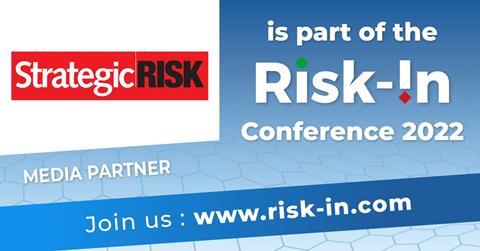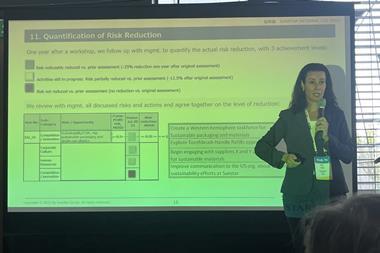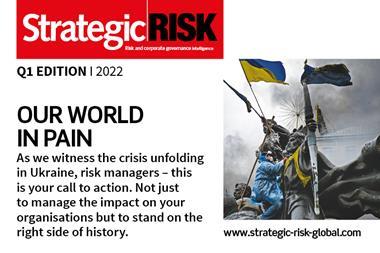Risk-!n 2022 kicks off on 19 May with a packed agenda that offers a “stimulant for change”
At a time when European risk managers are once again in crisis management and business continuity mode, navigating the fallout from the devastating war in Ukraine, the meeting promises to offer valuable perspectives.
Among the topics in Risk-!n 2022’s packed agenda are managing risks during a crisis, a live hackathon - which will take delegates through the realities of making quick, informed decisions during a major ransomware attack - and sessions headed by some of the most respected minds in risk in Europe and beyond.
“Risk-!n provides central Europe a sounding board for exchange on risk management topics,” says Adrian Clements, president of AT-IPIC. “It offers a wide range of alternative topics delivered by experts in those fields.”
“As it draws people from many backgrounds and experience levels Risk-!n has the potential to create something new and be, or at least provide the stimulant, for change.”
At the meeting, Risk-!n founders Antoine Lacombe and Stéphane Martin will chair the welcome session and consider ‘How risky is it to cross the Atlantic Ocean?’
Ferma risk manager of the year Alex Sidorenko will explain why he is so intent on shattering many long-held risk management beliefs.

The changing role of the risk manager
And Clements and Daniel Roberts, risk advisor GRMSi, will consider decision-making and the future role of the risk manager.
Clements says risk managers must be curious, adaptive and inspiring to cope with an ever-changing risk landscape.
“The problem is as complexity has grown, so has risk management fragmented into specialisations, which in turn have found themselves partitioned into manageable pieces.
“There are governance, control, audit, finance, operational, business continuity, insurance specialists, simulators, quantitative experts etc. All talking about risk management, all developing rules and papers telling how it should be done and what it is.”
“All are successful but few do it right,” he explains. “Take a look at how many have said, ‘Wow! Didn’t see that coming!’ Very few realise that it’s about decision making, and therefore soft skills are key.”
Roberts thinks it is inevitable given the nature of risk that risk managers will experience surprises from time to time, but they should be rare occasions.
“The risk manager needs to be able to acknowledge the ‘miss’ and be ready to ask ’how do I learn from that, and how do we avoid missing the next big thing’.”
Looking ahead, the risk manager is there to:
- Challenge, support new ideas and basically be curious so as to leverage the innovation of the teams;
- Think strategically and offer alternatives so that resilience is coming to the fore, and
- Lead, coach and highlight that risk management is providing a behaviour that is visionary.
The role of HR will need to change to facilitate the risk manager’s purpose as it evolves, he believes. “HR needs to smooth some of the cognitive bias that arises when the senior management doesn’t want to be challenged, is stuck with, ‘but we’ve always done it this way’,” he says.




















No comments yet